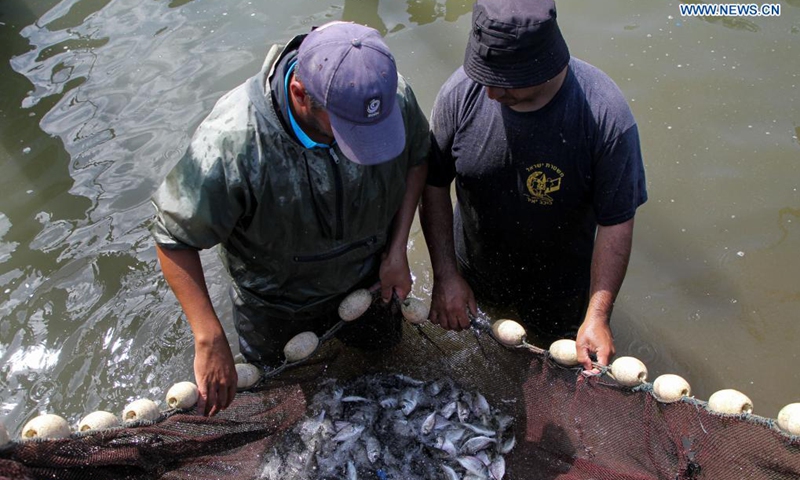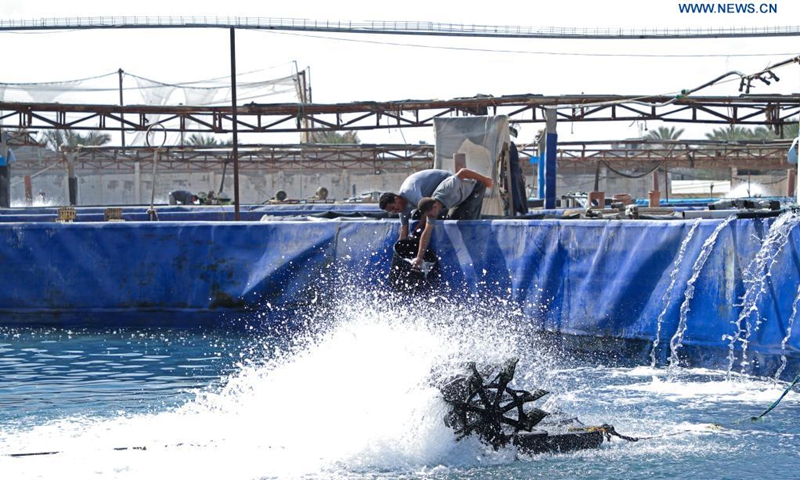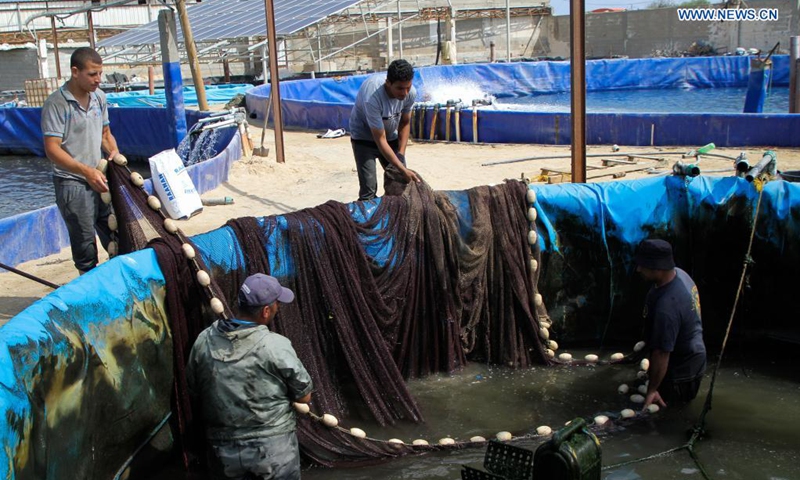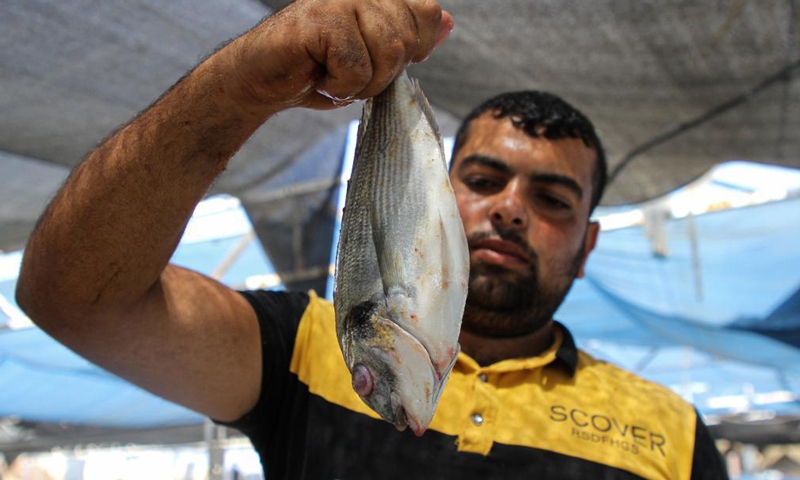
Palestinian workers work at a fish farm in the southern Gaza Strip City of Rafah, on June 14, 2021.(Photo: Xinhua)

Palestinian workers work at a fish farm in the southern Gaza Strip City of Rafah, on June 14, 2021.(Photo: Xinhua)

Palestinian workers are seen at a fish farm in the southern Gaza Strip City of Rafah, on June 14, 2021.(Photo: Xinhua)

A Palestinian worker displays a fish at a fish farm in Gaza City, on June 14, 2021.(Photo: Xinhua)
The Israeli closure of the only commercial crossing with the Gaza Strip has inflicted huge losses upon the fish farms in the coastal Palestinian enclave, since dozens of tons of their fish have been prevented from being exported to the West Bank markets.
In Gaza, eight out of 11 bream fish farms have been forced to shut down. The owners told Xinhua that their businesses were deeply affected by the tensions between Israel and Gaza.
The Israeli authorities have kept the Kerem Shalom crossing with Gaza totally shut since May 10, the day when a round of heaviest fighting between Israel and Gazan factions led by Hamas since 2014 broke out.
During the 11-day fighting, Israeli fighter jets carried out hundreds of airstrikes in the Gaza Strip, while Gazan militants launched thousands of rockets toward Israeli towns and cities.
"The bombing area adjacent to my farm caused great damage, killing tens of thousands of fish," Yasser Al-Hajj, owner of Al-Hajj fish farm, told Xinhua. His farm produces 350 to 400 tons of bream annually, a large proportion of which are usually exported to the West Bank and some Israeli cities.
The 42-year-old father of five said his losses exceeded 80,000 U.S. dollars according to the estimate issued by the Hamas-run Ministry of Agriculture.
"Thousands of fish overcrowd the ponds, which means lack of oxygen and their subsequent death," Al-Hajj said, adding about 18,000 of his fish have died.
He feared that the continued closure of the lifeline crossing would lead to even more losses and eventually force him to close down the farm and lay off all his 55 workers who rely on their jobs in the farm to support their families.
Hassan al-Shaer, who owns the Fish Fresh farm in the city of Rafah in the southern Gaza Strip, has experienced similar hardships.
The 54-year-old father of 11 said he may lose his significant project of cultivating fish for their eggs and fries as part of Gazans' move to reduce dependence on Israeli imports.
"Because of our persistence, we succeeded in producing our own fish in fewer than three years, and we are now exporting them to the West Bank and even Israel. Unfortunately, I doubt that our project can go on because Israel insists on punishing the Palestinians," he explained.
In an attempt to overcome the crisis, the owners of fish farms in Gaza now have to cut the fish prices from 11.7 dollars per kg to 7.7 dollars per kg.
Jihad Salah, director of services at the general administration of fisheries resources at the Ministry of Agriculture, told Xinhua that the total direct and indirect losses of the fishing sector in Gaza were estimated at 2.65 million U.S. dollars.
